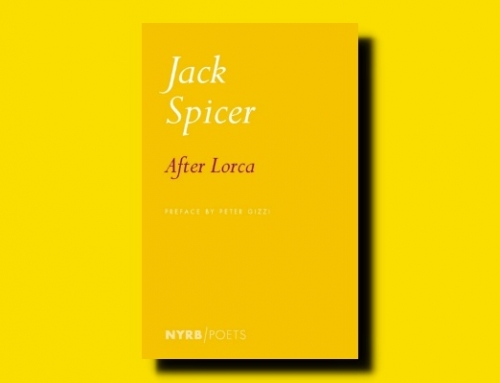Skylark by Dezsö Kosztolányi (Pacsirta, 1924) translated from the Hungarian by Richard Aczel (1993) NYRB Classics (2010) 222 pp
A few weeks ago I had the pleasure of visiting with Edwin Frank, the editorial director of NYRB Classics. NYRB Classics is one of my favorites, both as a publisher and as a brand. Their books are lovely to behold and lovely (or, at the very least, always interesting) to read. They’re an important publisher because they seek to print literary treasures, whatever the genre, lost to time by simple neglect or because the commercial publishers simply didn’t think they were commercial. While visiting NYRB Classics, Mr. Frank offered me two of their new books, one of which was Skylark by Dezsö Kosztolányi. The one, he said (in my words, because I can’t remember exactly what he said), was great; Skylark,he said (in his words), is a masterpiece.

Skylark has an interesting, yet somewhat mundane, premise. Set in a small provincial Hungarian town in 1899, Mother and Father are sending their daughter Skylark away for a week-long holiday to visit an uncle’s estate. Skylark is in her mid-thirties, yet her parents fret over her preparations as if she is a little girl. They worry about how she will cope. Were they foolish to send her away for a week? And how will they cope? Skylark takes care of them, fixes all of their food. What are they going to do without their beloved daughter? During all of the preparations, as we attempt to figure out the family dynamics, we get this wonderful description of Father and Mother — as mouses:
Father wore a mouse-grey suit, the exact colour of his hair. Even his moustache was the same light shade of grey. Large bags of crumpled, worn, dry skin hung beneath his eyes.
Mother, as always, wore black. Her hair, which she slicked down with walnut oil, was not yet altogether white, and her face showed hardly a wrinkle. Only along her forehead rant two deep furrows.
Yet how alike they looked! The same trembling, startled light in their eyes, their gristly noses narrowing to the same fine point and their ears tinted with the same red glow.
Meanwhile, Skylark (“They had given her that name years ago, Skylark, many, many years ago, when she still sang. Somehow the name had stuck, and she still wore it like an out-grown childhood dress.”) sits outside waiting for them to call her:
She did not move at once. Perhaps she hadn’t heard.
In any case, she liked to sit like this, head bowed, peering at her work even when she had tired of it. The experience of many long years had taught her that this posture suited her best.
Perhaps she heard some sound, but still did not look up. She governed herself with all the discipline of an invalid.
As you can see, much of the joy in this book is in the great descriptions, always perfect but unexpected: mousey parents, a name like an out-grown childhood dress, a woman governing herself with all the discipline of an invalid. These descriptions create such a wide range of possible interpretations and suggest the complex inter-family dynamics familiar to us all, if usually left unspoken. On the surface parents and child love one another — perhaps too much. Or is one being bullied by the other? Finally Skylark goes in to see her doting parents, but the contrast is immediately present:
The elderly couple watched with fond smiles as she drew near. Then, when her face finally revealed itself between the leaves, the smiles paled slightly on their lips.
Why the paled smile? Do they fear her? Do they pity her? Do they despise her? But soon Skylark is on a train, and Father and Mother are bereft. They really do miss their daughter. Trying to figure out how to spend their time, they begin making their way to the only restaurant Skylark deemed passable while she was away. Their presence on the street is a strange sight:
The interest that had met the couple in the restaurant followed them out into the street. Strangers turned to look at them as they passed. Not that there was anything unusual about their appearance. People simply weren’t accustomed to seeing them there in the street, like old couches that belong in the living room and look so strange when, once or twice a year, they’re put outside to air.
Again, so much wonder is in the subtle descriptions. All that I’ve summarized above takes place in the first few pages of the rather short novel. Father and Mother still have a week to suffer through. Only, to their surprise and not-slight horror, they find that they enjoy themselves. The food at the restaurant is wonderful. Skylark, who must have a sensitive stomach, always prepares such bland dishes. They reunite with old friends and go to the theater, something they don’t usually do because Skylark’s eyes are sensitive and cannot cope with the theater smoke and the closed-in area.
I must stop summarizing the plot now. I think it is obvious this book is about a father and mother who are basically voluntarily enslaved by their daughter who is sick or ugly or both. However, the book is so much more than that, both in scale and intimacy. This is Hungary in 1899. Father and Mother read the newspapers, but they aren’t interested in the events that we, with hindsight, know are important. But why should they care? Their lives are in complete stasis with so much emotion and power carefully covered up below the surface. This week without Skylark threatens to destabilize the existence they have created.
In a state of excitement, things that normally pass unnoticed can seem pregnant with significance. At such times even inanimate objects — a lamppost, a gravel path, a bush — can take on a life of their own, primordial, reticent and hostile, stinging our hearts with their indifference and making us recoil with a start. And the very sight of people at such times, blindly pushing their lonely, selfish ends, can suddenly remind us of our own irrevocable solitude, a single word or gesture petrifying in our souls into an eternal symbol of the utter arbitrariness of life.
The ending of the book is masterful. As one would hope with a “masterpiece,” the threads don’t tie up in the way we might expect, and the pattern turns out to be far more complicated than we imagined — and much sadder. Much is said in this line:
Nothing had been settled or resolved. But at least they had grown tired. And that was something.
I can’t recommend this book highly enough.








NYRB are marvellous, aren’t they? The US answer to Pushkin Press. I only recently started paying attention to them, my loss before then.
Thanks for this review. I’m keen to read more Hungarian fiction, to achieve that and read a masterpiece is no small thing.
Wonderful quotes, more than you often quote I notice, I suspect because they’re just so good. Were there other wonderful quotes you had to regretfully leave out so as to avoid overwhelming the review?
Anyway, thanks again. I’ll definitely pick this up, absolutely my sort of thing.
In answer to your question, Max, yes. I would have liked to have quoted, for example, Chapter 2 in its entirety. I think it is so marvelously done. As an amateur, I have problems when almost every passage in the book is so great. How do I write about them? I look forward to your thoughts. Also, New Directions will be publishing another Kosztolányi later this year. Something else to look forward to!
I get the same issue on occasion Trevor, there are books where the whole thing is simply so well done that it all cries out for quoting, Jarmila for example.
I liked how you brought out the questions the passages raised for you, about the implications of the language, what each quote left unanswered as well as what it answered.
Anyway, I’m excited about this one, so your review communicated your excitement. Nicely done.
this sounds great trevor ,i ve not read much hungarian lit got attila bartiss to read ,think i ll get this love way nyrb keep unearthing these lost classics
I am glad that you got to meet NYRB’s Mr. Frank.
It’s great to see what’s behind the scenes.
A couple of bookstores here carry the NYRB classics. I always like to see the titles.
Skylark was originally put out by Central European University Press back in the nineties and the CEU Classics series was kickstarted in 2007. They don’t put out much fiction, but everything they do does look interesting. We so often get our classics – the Dickens, the Brontës, the usual fare – but what they offer is the chance to read the equivalent classics a different region. I was reading Zsigmond Moricz’s Be Faithful Until Death one day and a Hungarian I work with spotted it and talked about how it was a fondly remembered tale of her school days.
Hungarian fiction always sounds damn interesting and I seem to have accummulated loads of it.
Oh, and I saw this in the shop today whilst having a cheeky browse. Bought it.
You won’t be sorry, Stewart. By the way, I’m reading and acquiring much more Hungarian fiction than others, too. It’s a rich field!
[…] byDezsö Kosztolányi which i read about on trevors blog the mooske and the gripes also nyrb had a poscast with a reading from the book .it follows skylark a young girl in a small […]
Just a little note to let you know that I got myself a copy of this book [thank goodness the imprint is available, somewhat still limited, here in my country], because of your review. I just reread your post, and it makes me more excited to start on the novel. :] Thank you!
[…] time reading Dezsö Kosztolányi–I had not even heard about him prior this read. He was endorsed, though. Also, in Peter Esterhäzy’s introduction to the text, he writes, “He shares […]
[…] quote from a different source, this one from Trevor Berrett of The Mookse and the Gripes whose own review alerted me to this marvellous novel. I can’t recommend this book highly […]
[…] year, Dezsö Kosztolány’s wonderful Skylark – a tale about an unfortunately ugly girl’s relationship with her parents, a […]